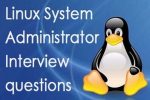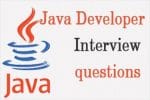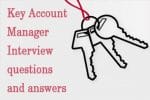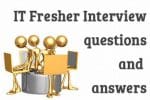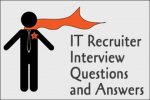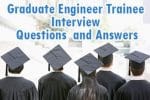MBA HR Interview Questions and Answers for Freshers
MBA HR Freshers main responsibilities will include sourcing candidates through telephonic and internet sites and scrutinizing the manpower eligibility according to the requirement criteria policy of the company. The questions asked in an MBA HR interview for fresher are generally basic questions. Below you will get some frequently asked MBA HR interview questions and answers. Preparations for some questions are essential so as to face the interview with confidence. However, you should not sound as if you are already prepared with the answers.
1 Q: Tell me about yourself.
A: It is the most frequently asked question. You can begin by saying why you are well qualified for the position. Say about your educational qualifications and achievements in your internship which relates to the job position you are interviewing for. Be careful that it does not sound rehearsed.
2 Q: What are your greatest strengths?
A: Describe in a positive way few strengths that you possess. Remember to mention those skills which are suitable for the job position you are applying for. Some examples are leadership skills, positive attitude, problem solving skills etc. Also try to give examples of situations where you have shown your strengths.
3 Q:. Are you a team player?
A: Always say that you are a team player and you should have examples ready. Mention how you enjoy working in a team and how you have been working on projects in a team in your internship also. You can also mention about the success you have achieved as a team.
4 Q: What do you know about this organization?
A: This question is one reason why you should do some research about the organization before appearing for your interview. Find out about what is their current position, about their competitors, products etc. The interviewer through this question is interested in finding out whether you are serious about joining the company or not. So it is very important to know about the company.
5 Q: Are you applying for other jobs?
A: Be honest in your answer but do not make your answer very lengthy. As an MBA HR fresher it is quite obvious that you will be applying for other jobs as well. However, keep the focus on the job you are interviewing for. You need not name the companies where you have been applying for.
6 Q: Why do you want to work for this organization?
A: You need to give an impressive answer to this question. Based on your research about the organization, you should come up with a good reason as to why you want to work for the company. You can also relate to your long term career goals.
7 Q:. What are you looking for in a job?
A: The best way to answer this question is to give a generic reply. A good working environment, learning experience and ability to contribute are some key factors that one should look for in a job. You can also add that you are looking for a job that fosters attention to quality, honesty and integrity. Be brief and confident in your reply.
8 Q:. How is your course relevant to HR?
A: You need to mention about the important aspects of HR you have learnt during your MBA training. You need to emphasize relevant transferable skills as well as other skills like communication skills which you learnt in seminars, planning skills while making projects etc. you should stress on the fact that since you studied efficiently and to the extent of MBA you can suggest that you would be a good employee to the organization.
9 Q:. Why should we choose you?
A: HR is a very competitive field to enter and so you have to sell yourself effectively at interview. Describe your skills so as to prove yourself a better candidate. Show your enthusiasm and how you will be committed to your work if given a chance. You can also refer about your internship if it relates to the position of HR. Be confident while answering this question.
10 Q: Do you have any questions for me?
A: Always have some questions ready. This will show that you have an interest in working in the company. However, limit your questions to three or four. You can ask questions about your work or about your joining etc. This is the time when you can leave with a feeling that you are someone who is the best fit for the position. And so the quality of questions you ask is one of the things they will remember about you.
You May Also Like Other HR Interview Questions
Group Discussion Topics for HR Interview Round
Digital Marketing Interview Questions
HR Round Interview Question Answers
Leadership Interview Questions
Management Job Interview Questions
HR Interview Questions
Purchasing Interview Questions
Project Interview Questions
CEO Interview Questions
Accounting Interview Questions
Brand Manager Interview Questions
Marketing Manager Interview Questions
Microsoft Interview Questions about Applications
Training Manager Interview Questions
Telecom Sales Interview Questions and Answers
Categories: Job Interview Tags: HR Interview Questions
Linux System Administrator Interview Questions and Answers
A Linux system administrator is responsible for maintaining the continued operational status of the Linux based computers or networks. Linux system administrators work closely with many different elements within the department. They should be versed in project management systems and network infrastructure. Teamwork is essential for this position. Following are some frequently asked Linux System Administrator Interview questions and answers. You should be prepared with the answers to these questions. The questions are all technical based.
1 Q: Define Linux?
A: Linux is an operating system. It is the software on a computer that enables applications and the computer operator to access the devices on the computer to perform desired functions. The operating system relays instructions from an application to, for instance, the computer’s processor. The processor performs the instructed task, then sends the results back to the application via the operating system.
2 Q: What is the difference between UNIX and LINUX?
A: Linux is an operating system kernel and Unix is a certification for operating systems. The Unix standard evolved from the original Unix system developed at Bell Labs. Linux is free , open source and intended as a non propriety operating system for the masses.
3 Q:. What are the basic components of LINUX?
A: Like any other typical operating system, Linux has all of these components- kernel, shells and GUI’s , system utilities and application program. What makes Linux advantageous over other operating is that every aspect comes with additional features and all codes for these are downloadable for free.
4 Q: What do you mean by GUI?
A: A Graphical User Interface is a human computer interface that uses windows, icons and menus and which can be manipulated by a mouse. A major advantage of GUIs is that they make computer operation more intuitive and thus easier to learn and use.
5 Q: What is swap memory?
A: Swap space can be defined as a temporary storage location that is used when system’s memory requirements exceed the size of available RAM. In other words, a swap memory is a space in the hard disk of your computer that operating systems will use to put the info that is actually on the RAM to free it for another application.
6 Q: What is the main difference between SSH and TELNET?
A: Both SSH and Telnet services are used to connect remote machine. The key difference between Telnet and SSH is that SSH uses encryption, which means that all data transmitted over a network is secure from eavesdropping.
7 Q:. What is the advantage of open source?
A: Open source software is free to use, distribute, and modify. Open source software is more secured as the code is accessible to everyone. Anyone can fix bugs as they are found, and users do not have to wait for the next release. Open source is not dependent on the company or author that originally created it. Even if the company fails, the code continues to exist and be developed by its users.
8 Q:. What is the importance of GNU project?
A: The GNU project allows freedom to run programs for any purpose and freedom to study and modify a program to your needs. It allows you to redistribute copies of a software to other people, as well as freedom to improve software and have it released to the public.
9 Q:. What do you mean by root account?
A: The root account is the most privileged account. This account gives you the ability to carry out all facets of system administration, including adding accounts, changing user passwords, examining log files, installing software etc. It is the default account every time you install Linux.
10 Q: What is CLI?
A: A CLI (Command line interface) is a user interface to a computer’s operating system or an application in which the user responds to a visual prompts by typing in a command on a specified line, receives a response back from the system, and then enters another command and so on. The MS DOS prompt application in a Windows operating system is an example of the provision of a command line interface.
11 Q: What is the basic difference between BASH and DOS?
A: BASH commands are case sensitive while DOS commands are not. Under BASH, / character is a directory separator and acts as an escape character. Under DOS, / character serves as a command argument delimiter and is the directory separator. DOS follows a convention in naming files, which is 8 character file name followed by a dot and 3 character for the extension. BASH follows no such convention.
Categories: Job Interview Tags: Administrator Questions, Interview Questions, Linux System
IT Sales Interview Questions and Answers
An IT Sales person will be responsible for selling hardware and software products as part of a sales team. The main responsibilities of IT sales include meeting the client and determining his needs, decide whether the software or hardware meets the needs of the client, answering technical questions and presenting the findings to the technical team to act on and also to the client. An IT sales person will need to have patience and ability to interpret technical language for non technical people. Following are some IT Sales Interview questions and answers. These questions are the most frequently asked questions in IT Sales interview. You can prepare yourself with these questions before appearing for your interview.
1 Q: What according to you are the most important sales skills?
A: The interviewer will be looking at your sales skills. Sales jobs need abilities and skills. An IT Sales person should have excellent selling skills, technical knowledge, presentation skills and negotiating skills. These skills are important for a successful IT Sales person. You can also give examples of the skills you have demonstrated in your previous jobs.
2 Q: What do you dislike about sales?
A: Try to give a generic answer to the question. Answer in a positive way and give a characteristic about your previous company which you dislike. Do not make your answer very lengthy because your dislike may also be viewed as a weakness. Keep it short and to the point.
3 Q:. How do you handle rejection?
A: Rejections are very common in sales. Try to give an honest answer on how you handle rejections. A positive attitude is what is actually required in sales. All customers do not purchase what you are selling. They will give you different reasons for not buying. You need to answer the way you move on to the next prospect without much disappointment. Say about how you use rejection as a motivator and an opportunity to learn.
4 Q: What interests you most about this IT sales position?
A: The interviewer will want to know how much interest you have in selling. You need to do some research about the company and its IT products. You have to give reasons why you want to sell the company’s IT products. You need to show interest in the company’s strategies while giving your answer.
5 Q: What motivates you?
A: A salesperson should always be motivated in order to make sales. Show your interest and enthusiasm for the sales position. You need to express your self motivation and how you motivate yourself should also be described. You can also give an example from your past jobs.
6 Q: What will you say about your sales history in your previous jobs?
A: The interviewer will be looking for a candidate who has experience in sales. Talk about your sales achievement in your previous jobs. Be prepared for this question before your interview so that you can give sales number as to how you have achieved your sales goals.
7 Q:. How do you present a new product for a client?
A: The interviewer will want to view an actual presentation. You need to demonstrate your selling skills here. Be confident and enthusiastic to show your ability to sell. It would be best to research about the company’s products so that you can speak well about their IT products and potential client base.
8 Q:. What do you find most rewarding about being in sales?
A: It is important that you show how much you enjoy in doing sales. You can also give examples like you enjoy interacting with people, meeting new people etc. Avoid saying that you find money as the most rewarding factor. The interviewer wants to look whether you like sales job and whether you have the motivation needed for making sales.
9 Q:. What makes you a good sales person?
A: Here you have to bring out your skills and abilities which make you a good sales person. Being patient and ambitious are few skills, however you need to find the skills which you possess that makes you a good sales person. You need to be honest and confident while answering this question. The interviewer is looking for an honest person who also makes a good sales person.
10 Q: Are you happy with the way your career is moving?
A: Through this question the interviewer wants to judge your self confidence, attitude and your goals. You need to give a positive answer and explain your career from the beginning till date. You can mention that by joining the company you are interviewing for you will be able to move in the right direction. Give importance to the job you are interviewing for.
11 Q:. What are your strengths?
A: Concentrate on discussing your main strengths. The strengths you mention should relate to the job of IT Sales. Say three or four strengths and also be prepared to give examples. For example you can say that your positive attitude, achieving targets etc are some of your key strengths.
12 Q: What are your weaknesses?
A: You should not deny that you don’t have any weakness. Say something which is not directly related to the job you are interviewing for or mention a weakness which can also be viewed as strength. Also mention the steps you are taking to overcome your weakness.
13 Q: Why do you want to leave your current job?
A: Give positive reasons for leaving your current job. You can say reasons like new challenges, more responsibility, or a change of environment. You should be careful not to say anything negative about your job even if it is the truth. Also do not mention salary to be your reason for leaving your current job.
Categories: Job Interview Tags: Good Interview Questions, IT Job Interview
Java Developer Interview Questions and Answers
The job of a Java Developer involves creating programs and websites based on the scripting language JavaScript to create moving drop down menus, images, animation and music. These developers are also responsible for enhancing site usability, design and functionality. Their job is to gather and document user requirements and analyze data. Below are some frequently asked Java Developer Interview questions and answers. A Java Developer should have thorough knowledge of the programming language. Most of the questions are based to test the knowledge of the Java Developer.
1 Q: Say something about your technological skills.
A: A Java Developer should be highly technologically savvy with experience working with JavaScript, HTML, Microsoft SQL Server, Eclipse, etc. Describe the other technological skills you know and which relate to the job. Give examples of your experience in your previous jobs also. Talk only in a few sentences and keep it to the point. A Java Developer needs to have great knowledge about technology.
2 Q: What are the key tasks of a Java Developer?
A: Creating complex web based applications, developing e-commerce sites that use collection of user information, writing and revising programs as per client requirements, producing weekly or monthly progress reports etc. are some key tasks of a Java Developer. But it is necessary to read the job description carefully so as to answer this question. Answer in a brief and keep it simple.
3 Q:. Mention five features of Java Programming Language.
A: The five features of Java Programming language are Platform Independent, Object oriented, multithreaded and Interactive and distributed. You can also describe about each feature. Do not make it very long. Just one line of each feature is enough.
4 Q: What is the difference between abstraction and encapsulation?
A: Abstraction is the ability to define an object that can represent abstract entities which can work, change state and communicate with other entities. Encapsulation is a mechanism by which you restrict the access to some of the object’s components, as well as binding the data and methods operating on data.
5 Q: What do you mean by infinite loop?
A: An infinite loop is a sequence of instructions in a computer program which loops endlessly, either due to the loop having no terminating condition, having one that can never be met, or one that causes the loop to start over.
6 Q: What is the difference between abstract class and interface in Java?
A: The main difference is methods of a Java interface are implicitly abstract and cannot have implementations. A Java abstract class can have an instance method that implements a default behavior. Variables declared in a Java interface is by default final. An abstract class may contain non final variables. Members of a Java interface are public by default. A Java abstract class can have the usual flavors of class members like private, protected etc.
7 Q:. When we should use serialization?
A: Serialization is the process of converting an object’s state to a sequence of bytes, as well as the process of rebuilding those bytes into a live object at some future time. Serialization is used to persist data for future use, to send data to a remote computer using such client/server Java technologies as RMI or socket programming, to flatten an object into array of bytes in memory and to send objects between the servers in a cluster.
8 Q:. What is the purpose of Static methods and static variables?
A: When there is a requirement to share a method or a variable between multiple objects of a class instead of creating separate copies for each object, we use static keyword to make a method or variable shared for all objects.
9 Q:. Describe synchronization in respect to multithreading.
A: With respect to multithreading, synchronization is the capability to control the access of multiple threads to shared resources. Without synchronization, it is possible for one thread to modify a shared variable while another thread is in the process of using or updating same shared variable. This usually leads to significant errors.
10 Q: What is static variable in Java?
A: A static variable is one that’s associated with a class, not objects of that class. Static means one per class, not one for each object no matter how many instance of a class might exist. This means that you can use them without creating an instance of a class. Static methods are implicitly final, because overriding is done based on the type of the object, and static methods are attached to a class, not an object.
11 Q:. What are the skills required for a Java Developer?
A: The skills generally required for a Java developer job includes analytical and problem solving skills, technical writing skills, effective communication, multitasking and time management, organization skills and interpersonal skills. Give examples where you demonstrated such skills so as to be thought of as a good fit for the job of a Java Developer.
12Q: What is an Iterator?
A: Some of the collection classes provide traversal of their contents via java.util.iterator interface. This interface allows you to walk through a collection of objects, operating on each object in turn. Iterators contain a snapshot of the collection at the time the Iterator was obtained; generally it is not advisable to modify the collection itself while traversing an Iterator.
13 Q: What is overriding?
A: When a class defines a method using the same name, return type, and arguments as a method in its superclass, the method in the class overrides the method in the superclass. When the method is invoked for an object of the class, it is the new definition of the method that is called and not the method definition from superclass. Methods may be overridden to be more public not more private.
Categories: Job Interview Tags: Developer Questions, Interview Questions
Key Account Manager Interview Questions and Answers
Key Account Managers act as a contact between the client and his or her company. Key account managers engage in a variety of tasks which goes beyond sales to draft and manage the relationship between a business entity and its customers. Key account managers evaluate and adapt new strategies to keep up with current business trends. They should have great marketing skills and should have good technical background with regard to previous and current trends. Following are some questions for Key Account Manager Interview. These questions are frequently asked by interviewers.
1 Q: What makes a successful Key Account Manager?
A: The interviewer wants to find out about the characteristics that makes a candidate a successful Key Account Manager. You should identify three to four key skills such as strong marketing skills, an effective communicator, enthusiastic etc as some of the skills to be a successful Key Account Manager. You should say this answer in a confident tone.
2 Q: What kind of work environment do you prefer?
A: You may state your preference of working environment but remember that the company you are interviewing for may have a different work environment. So be careful to also mention that you can adjust to different work environments. This is essential to add as the interviewer may find you as unsuitable for the work environment they have.
3 Q:. How good are you in meeting deadlines?
A: An interviewer expects a key account manager to be efficient in knowing how to meet deadlines. Explain with examples from your previous jobs where you successfully completed the task within the deadline. Also mention how you achieved the same.
4 Q: How would you rate your team work and communication skills in the role of a Key Account Manager?
A: An account manager is responsible for dealing and communicating with both clients and company. So, team work and communication skills are essential for a Key Account Manager. You need to work closely in a team for closing the deal. While rating yourself, consider these skills that you demonstrated in your past job. You should very well know how god are you in team work and interacting with people.
5 Q: Do you implement strategies for increasing revenues?
A: A key account manager has to implement strategies so as to increase and maintain client interest. Marketing research is very important for increasing revenues. You should know the client’s changing needs and accordingly formulate and implement strategies. Describe about how you implement strategies by using your knowledge and experience.
6 Q: Why do you think you would do well as a Key Account Manager?
A: Describe how your knowledge, abilities and skills conform to the job description. Also it is very beneficial to mention your experience in the same position in your previous job. You need to give an answer which makes the interviewer think of you as a good fit for this position. Don’t compare yourself with others but just highlight what makes you stand apart and what you can contribute to the company.
7 Q:. What are the duties of a Key Account Manager?
A: The duties of a Key account Manager vary depending on the type of industry. It is advisable to read the job description for answering this question. An account manager has to communicate with clients and maintain or exceed a minimum amount of sales. An accounting manager is also often required to prepare various reports of sales which are presented to senior management.
8 Q:. What are your long term goals?
A: The interviewer wants to learn about your long term career goals. Do not say anything about your personal goals. It is important to prepare this answer before appearing for the interview as this question is frequently asked by interviewers. Also describe how you plan to achieve those goals.
9 Q:. Give an example of when you had to make a tough decision within a few minutes.
A: The interviewer wants to find out your ability to make quick decisions within a short period of time. So you need to wisely describe your situation and the decision you took under the circumstances. Also mention how your decision was proved a successful one.
10 Q: Have you been able to consistently achieve your targets in your previous jobs?
A: You need to prove yourself as an efficient candidate while giving the answer. Say how you achieved your targets and how you were appreciated by your boss. Also, assure the interviewer that you will give your best if given an opportunity to work in the organization. Keep the answer brief and to the point.
Categories: Job Interview Tags: Key Account, Manager Interview
IT Fresher Interview Questions and Answers
For an IT Fresher interview it is necessary to take the time to know about the company and about the job you are interviewing for. In order to be successful, you need to mention the skills and abilities that are required for an IT Fresher. Preparing yourself with some frequently asked questions is very necessary so as to be successful in your interview. Below are some frequently asked IT Fresher interview questions and answers for your preparation. During your interview you need to be confident while answering questions so as to impress the interviewer. You should also be prepared with some technical questions which are also asked by interviewers.
1 Q: Say something about yourself.
A: While answering this question you need not repeat the information that is already written in your resume. Say only relevant and important details. As a fresher, you don’t have anything to talk about your previous job, so you can very well describe about your qualities and achievements. Do not make it very long. You should know where you need to stop.
2 Q: What do you know about our company?
A: Do a good research about the company like its history, profile, achievement and activities. You need to give only the main points and also add some information which is useful for the company. For this you have to spend time on websites, press release, journals etc. The interviewer is interested in finding out whether you are interested in the company or not.
3 Q:. Are you able to handle pressure?
A: As a fresher, it is important for the interviewer to find out whether you will be able to work effectively under pressure. You should answer in an optimistic and positive way. You should say that you take pressure as a challenge and would like to work under pressure. You can give examples of your projects which you have done in the past and where you had to work under pressure to meet the deadlines.
4 Q: What has been the greatest disappointment in your life?
A: You can mention about your personal disappointment also. It is not necessary that everyone will have a career related disappointment. Whatever you say it should not reflect your weakness. Say about how you moved on after facing the disappointment.
5 Q: Do you prefer to work independently or in a team?
A: As an IT Fresher, it is very important that you have within yourself great team spirit. Be ready to give examples. You need to give good evidence of your team spirit and say that you can work in both ways. Do not talk too much about yourself. You should be aware of what you have to say.
6 Q: What is your greatest strength?
A: You should mention your strengths which are related to the job of an IT Fresher. The interviewer is looking for work related strengths. Whichever strength you say, you should be prepared with your answers. You can say about your technical skills, positive attitude etc. You should be able to impress the interviewer with your answer.
7 Q:. What is your biggest weakness?
A: Do not deny that you have no weakness. Mention a small work related weakness. You can also say your weakness which can be treated as your strength also. However, if you are mentioning your weakness, also give what measures you are taking to overcome and improve it. It is all about how you evaluate yourself and answering in a positive way to the interviewer,
8 Q:. Why we should hire you?
A: You need to answer this question very carefully. You need to bring out your skills to show why you are a suitable fit for the organization. You need not make comparisons with other candidates. Just mention how you are suitable for this position. Describe how you will contribute to the company using your skills and abilities. Also highlight some of your achievements in relation to the job position.
9 Q:. Why do you want this job?
A: Be specific in your answer. You cannot say that because the salary the company is offering is good as your reason. Describe about the company’s values and good working environment as reasons for your working in this company. You need to be prepared for this answer beforehand. Be positive and realistic in your answer.
10 Q: Who are our main competitors?
A: The interviewer wants to know whether you are aware about the company and its competitors. Highlight some similarities and differences between the company and its competitors. For this you need to do an analysis before appearing for the interview. You need to show the strengths of the company.
11 Q:. What are you looking for in a job?
A: Give a generic answer to this question. A good working environment as well as a place to learn and contribute can be your answer. You need not mention about a specific job or say about other companies. A generic answer is what the interviewer required for this question.
12 Q: Are you applying for other jobs?
A: If you are serious about joining a company, it is likely that you will be applying to other jobs as well. Be honest in your answer but do not give too much detail as to which companies you are applying. If asked about the names of the companies, you can always deny as it is not essential to name companies.
13 Q: Do you have any questions for me?
A: Always be prepared with some questions. Come up with some good questions. You will also be judged on this as to what type of questions you ask. Do some research and ask questions on that basis. Don’t ask more than three or four questions. It is better to ask limited and generic questions.
Categories: Job Interview Tags: Interview Question Answers, IT Job Interview
IT Recruiter Interview Questions and Answers
IT Recruiters are responsible for placing competent candidates within organizations for various positions. They connect the company with candidates who have the right skills and background. IT Recruiter position is a challenging position that require excellent communication, internet and research skills. If you are interviewing for an IT Recruiter position you need to prepare yourself before appearing for your interview. You will find below some frequently asked questions in IT Recruiter interview. You should be prepared with other questions as well. Whatever you say, you should sound confident.
1 Q: Why do you want to work here?
A: Do not answer in a way that sounds like you are greedy of salary and benefits. You can talk about the company’s reputation and growth. To say about the company, you need to research about the company before appearing for the interview. You can relate the company’s direction to your career goals and desires. Also, say how you are going to contribute to the company.
2 Q: What was your greatest accomplishment in your previous job?
A: Make sure that the accomplishment you say relates to the position you are interviewing. Talk with enthusiasm about your achievement. An interviewer may find it as untrue if you are not excited about it. You can talk about how you achieved it but remember not to make it too lengthy or else you may be viewed as a proud person.
3 Q:. What is your weakness?
A: Do not say unbelievable responses like you don’t have any weakness. Nobody is perfect and therefore, you will also have some weakness. Give an honest weakness which does not directly relate to the job of IT Recruiter or you can also describe of a weakness that you had at your previous job and explain the steps you took to overcome it.
4 Q: How do you handle stressful situations and working under pressure?
A: An IT Recruiter will face at times stressful situations and working under pressure. Give specific examples of stressful situations and how well you dealt with them. If the job role demands working under pressure, you should very well say that you work well under such situations. The interviewer through this question judges you whether you are capable to work under such stressful situations.
5 Q: Are you applying for other jobs?
A: The interviewer wishes to find out whether you are serious about changing your job. Your seriousness will come from the fact that you are applying to other similar companies also. Be honest in your answer but avoid going too much in detail. You need not mention names of companies at this stage.
6 Q: What is your greatest strength?
A: The interviewer through this question is looking for work related strengths. Mention few of your strengths which also relate to the job of an IT recruiter. For example good communication and research skills are required in an IT recruiter. Whatever you say, be prepared to give examples that illustrate your skill.
7 Q:. What is your biggest weakness?
A: This is a challenging question but you need to be realistic in your answer. Mention a small work related weakness. You can also say about a strength which is designed as a weakness. Mention what you have done to overcome it and improve your weakness. Limit your answer to a few sentences.
8 Q:. What has been your biggest professional disappointment so far?
A: You need to talk about a disappointment which was beyond your control or else it will be viewed as your weakness. At the same time, be positive about how you accepted the situation. Do not show any negative feelings and talk for only two to three minutes for this answer.
9 Q:. Why should we hire you?
A: You need to highlight your skills and abilities in this question. Do not repeat what you have already said. Say what sets you apart from other candidates. Do not compare yourself with them. Make sure you focus on you. Describe why you make a suitable fit for the job and the company. Also say what you can contribute to the company through your skills and experience.
10 Q: Do you have any questions for us?
A: Have some questions prepared before appearing for your interview. This will show that you have taken some time out to research about the company and you have within you a desire to learn more. You can ask questions about your job role or how challenging it will be etc. Limit your questions to three to four questions.
11 Q: What are you looking for in this job of IT Recruiter?
A: This question lets the interviewer know whether the candidate has the desire to grow. Interviewers generally look for candidates who seem to be moving along a career path. Show your motivation and enthusiasm about the position you are interviewing for.
11 Q: What important skills are needed for the job of IT Recruiter?
A: The skills needed for the job of an IT Recruiter include good communication skills, interviewing skills and people skills. Give examples where you have shown such skills in your previous jobs. You need to give an honest answer to this question.
12 Q: What is your philosophy towards work?
A: Just say about your basic values that you adopt at workplace in a few sentences. You need not give a lengthy answer to this question. Be honest and specific in your answer. Mention what other things you do to bring positive energy in the team at work.
Categories: Job Interview Tags: Common Interview Questions, IT Job Interview
IT Manager Interview Questions and Answers
An IT Manager is responsible for ensuring that the streamlined operation of the IT Department is in alignment with the business objectives of the organization. IT Manager has to plan, coordinate, direct and design IT related activities of the organization, as well as provide administrative direction and support for daily operational activities of the IT department. Following are some frequently asked IT Manager Interview questions and answers. Be confident while giving your interview. Apart from the below questions you should be prepared with other questions as well.
1 Q: Are you aware of the responsibilities of an IT Manager?
A: IT Manager’s responsibilities can vary greatly depending on the size and structure of the company. The managerial role involves supervising the development, maintenance and security of computer and information network systems. The nature of IT manager responsibilities can also include encrypting and tracking information collected from consumers visiting the site to developing and overseeing the upgrading and installation of system related software and hardware. However it is also important to look after the job description before answering this question.
2 Q: Why do you think you are suitable for the post of IT Manager?
A: You need to sell your skills in this answer. Describe the skills required for an IT Manager. Strong organizational skills, analytical skills, communication skills and management skills are required by an IT Manager. Mention how you have shown these skills in your previous job and also say how you can contribute to the company.
3 Q:. What were your responsibilities in your previous job?
A: The best answer for this question will be to describe your responsibilities and relate them to the job you are interviewing for. Try to connect your responsibilities with those listed in the job description for the position of IT Manager. A proper description will enable the interviewer to see you as a good fit for the job position. It is also important that you are honest and confident while answering.
4 Q: How will you handle a customer related problem to a service?
A: In IT environments, service issues are common problems. So, an IT manager has to handle such issues which are not managed by his team. With your own experience and knowledge describe the steps you will take to resolve the customer related problem. Efforts to improve service delivery should be mentioned.
5 Q: Have you ever been assigned a task or project outside your job role? How did you handle it?
A: The interviewer wants to know about your willingness to accept new task and projects outside your job role. There are many changes that happen in an IT industry. Give examples from your previous jobs where you have been assigned such task or project and describe how you achieved success in doing the task. Through this question, the interviewer also wants to judge the ability to adapt yourself in different situations.
6 Q: What do you think about your decision making skills?
A: Decision making skill is an important skill for IT Managers. You need to describe examples from your previous job where you made important decisions. Also, say about the result of the decision and how it contributed to the company. You can also say about your decision making process and arriving at the correct decision.
7 Q:. As an IT Manager, what will be your way to direct the project or direct the people?
A: Here the interviewer wishes to know about your way of work. As a Manager, you have to direct the project as well as direct the people. As a Manager, you need to contribute in achieving the goals of the organization.
8 Q:. Why should we hire you?
A: You need to mention about your strengths which can add value to the job you are applying for. Say something which will make you stand apart from other candidates. You can say about your achievements and the skills you have learnt from your current job which will help you in the job you are interviewing for.
9 Q:. Why are you leaving your current job?
A: Do not be negative while answering this question. Mention reasons which bring you in a positive light. You can say that you are looking for professional growth and new challenges. Try to be positive and keep the answer short.
10 Q: How long do you expect to stay with our organization?
A: You should ensure the interviewer that you will stay back for a long period. Avoid giving any number of years , say in such a way that makes the interviewer think that you are going to contribute to the company for a much greater time.
Categories: Job Interview Tags: IT Job Interview, Manager Interview
Graduate Engineer Trainee Interview Questions and Answers
A Graduate Engineer Trainee after completion of his education prepares himself for joining the job world. As a Graduate Engineer trainee you might not be having experience but during interviews you can highlight your achievements and most interview questions are designed in this way. Find here some interview questions that are commonly asked in Graduate Engineer Trainee interview. The answers for these questions are also given for your reference. Through these questions and answers prepare yourself for your interview.
1 Q: Tell me about yourself.
A: As you don’t have experience so you cannot say about your work experience. Answer by describing about your education and achievements. Do not say anything about your personal traits or any other personal details. The interviewer is only interested in knowing whether you are suitable for the company or not. Keep the answer simple and brief.
2 Q: What are your Academic achievements?
A: Give a generic and impressive answer to this question. During the course of your education, you must have been successful. Describe about the achievement and also mention how you achieved using your skills. Your answer should be short and only your academic achievements should be highlighted.
3 Q:. Why do you think you are suitable for the position of Graduate Engineer Trainee?
A: You need to have a clear idea about the job responsibilities and the skills required for Graduate Engineer Trainee. The interviewer is not expecting you to give full knowledge about your education and qualifications. Match your skills and abilities with the job requirements in your answer. Be confident while answering so as to prove yourself suitable for the position.
4 Q: What motivates you?
A: Working in a team and achieving the goals can be a motivation for you. Accepting challenges and working under pressure can also be a motivation. You can also relate what motivates you to the specific requirements and duties of the job you are applying for. You can also give examples where you have motivated yourself to achieve success. This also shows that you work towards achieving success.
5 Q: What do you expect to be doing in five years time?
A: Be realistic in your answer and say about where your career could go in five years time. You can say that you see yourself in this company in five years time or any other thing which is related to your career. Do not mention anything about your personal goals.
6 Q:. Why did you choose to do your graduation in Engineering?
A: You need to be prepared with this answer before your interview. Say about the skills you learnt from doing this course which are also applicable for the job you are interviewing for. You should very well know why you wanted to do your graduation in Engineering and not in any other field. Give a short and simple answer to the question.
7 Q:. Why do you want to join as a trainee in our company?
A: Even before applying, you should be very well aware of as what the company does and what work will be required from you. It is very essential to spend time finding about these things so as to give a proper answer to this question. Give examples of your skills which will benefit the company so as to impress the interviewer. This is a very common question for trainees.
8 Q:. What are your strengths?
A: Knowing your skills before appearing for your interview is necessary for answering this question. You can mention anything which relates to the job of Graduate Engineer trainee such as strong academic results, your achievements, creative skills etc. You need to back up your strengths with relevant examples of where you have demonstrated these skills and competencies in your answer.
9 Q:. Can you define the duties of a Graduate Engineer trainee?
A: You should be able to answer this question easily. Most of the information is specified in the job description. A little bit of research on the work to be performed will help you in giving a confident answer. This is a very common question and preparing the answer before appearing for the interview will help you in giving a confident answer. The interviewer wants to find out whether you are aware of the duties and are you really serious about this job position.
10 Q: Why should we hire you?
A: Be brief and give an answer in an impressive way. You have to stand apart from other candidates. Mention your unique skills which will contribute to the overall development of the organization. Highlight your knowledge, abilities and skills and show that you will be a strong asset to the company. Your answer should include only positive details and you should be able to impress the interviewer with your answer.
11 Q:. What has been your greatest achievement?
A: The achievement you have to mention here is not about getting an engineering degree. As every other candidate will be having an engineering degree for this job, so you should say something that will make you stand out and should be able to relate to the job you are interviewing for. Mention some work which you have undertaken during your graduation which you have completed successfully or about some projects about which you were appreciated for. Whatever you say, it should be only one achievement and you have to describe how you achieved it.
12 Q: What do you look for in a job?
A: Mention that you want an opportunity to utilize your skills and knowledge to perform and contribute to the company. As a Graduate Engineer trainee you want to efficiently utilize the skills and training received for the benefit of the company and at the same time are looking for challenges and learning experience.
Categories: Job Interview Tags: Good Interview Questions, Graduate Engineer, Trainee
Graphic Design Interview Questions and Answers
Graphic designers are very much in demand nowadays. To be selected in a job interview, a candidate needs to have the required skills and abilities that are needed in a graphic designer. Creativity, ability to interpret the needs and demands of people are some skills of a graphic designer. Apart from this, knowledge of Photoshop, CAD and other tools are also essential for a graphic designer. Below are some commonly asked graphic design interview questions along with their answers. Make some preparation before appearing for the interview with these questions.
1 Q: Why did you choose graphic designer as your career?
A: Say your motive which made you choose graphic designer as your career. Different motives of career choice should reflect in your answer. Do not mention about things that everyone knows like money, good working environment or different projects. Focus on something which is different and corresponds to your motive and also it is for the benefit of the organization.
2 Q: How do you deal with criticism?
A: Criticism should always be taken in a healthy manner and it should be looked as an area of improvement. For a graphic designer, it may happen that his or her work is not appreciated because of the different preferences of people. So in such a case, criticism should be taken as a challenge and a learning experience.
3 Q:. Name some graphic companies you like the most.
A: Give the names of the graphic companies that you personally like. Mention some of their works and also add what ideas you have to give them competition. You should demonstrate your ability to contribute in a confident manner.
4 Q: How good are you at using relevant computer tools?
A: Graphic Designers work is related with the use of computers. The entire process of graphic design requires proficiency with computer software. A graphic designer has to make use of graphs, layouts, designs and illustrations in their work. Name only the few tools which you are really good at. Mention how long have you been working with these tools. If you say yourself good at all computer tools, later on if they take a test, the truth may come out.
5 Q: Are communication and interpersonal skills required for the job of a graphic designer?
A: Graphic designers have to work in a team. They have to work in accordance with the client’s needs. For this communication with the client is essential so as to know what final outcome is required from their work. So for all these reasons, communication and interpersonal skills are required for the job of a graphic designer.
6 Q:. Do you have experience with any products?
A: The interviewer wants to find out how much knowledge and experience you have in the field of graphic design. Logo design is a frequent job for graphic designers and it is often thought of as a beginner’s job. Mention one or two important works you have done and describe about them. You can demonstrate your abilities and skills through the work.
7 Q:. What are you professional strengths?
A: Creativity, interpersonal and communication skills are of prime importance in a graphic design job. Demonstrate with examples where you showed these skills in your work. Try to keep your answer in short and do not speak much about your strengths or else you may be looked upon as a proudy person.
8 Q:. What do you think your day will be like as a graphic designer in our company?
A: The answer to this question is to list out all the working tasks that you will undertake after joining the company. Describe about all the works you will be doing as the day goes by. It is good if you give an organized answer to this question.
9 Q:. According to you, what are the current trends in the area of graphic design?
A: For answering this question, it is advisable to read about the current trends in graphic design from various sources like news, websites etc. Also pay attention to the works of the company you are interviewing for and add this in your answer. This will create a good impression about you as the interviewer may find you suitable for the company.
10 Q: What kind of design projects are you interested in?
A: The interviewer here wants to know whether you will be interested in working in the design projects of their company. It is better to give an answer which matches with the design projects of the company. Do some research before appearing for the interview to know about their portfolio.
11 Q:. What have you done to improve your knowledge of graphic design?
A: Mention things like about your training in graphic design, additional classes that you took, new software knowledge that you acquired etc. The interviewer is not interested in employing a candidate who is not into the habit of updating himself. You can also talk about your future ideas in your response. Answer in an intelligent way so as to better you chances of becoming employed.
12 Q: How committed are you in matters relating to deadlines?
A: The interviewer is looking for an efficient employee who is committed to complete their work on time. Be honest in your answer. If you are good at committing to deadlines then you can say with examples of your previous job. However, if you don’t find yourself to ge good with deadlines, it is best to answer the interviewer that you respect deadlines and put in effort to get the job done.
13 Q: What have you learned from your mistakes as a graphic designer?
A: Mention the mistakes you have done in your previous job and what you learnt from them. Everyone makes mistake so it will be foolishness to deny that you never committed any mistake. Show the positive sides of the mistake which lead you to become a better graphic designer.
Categories: Job Interview Tags: Design, Interview Questions


